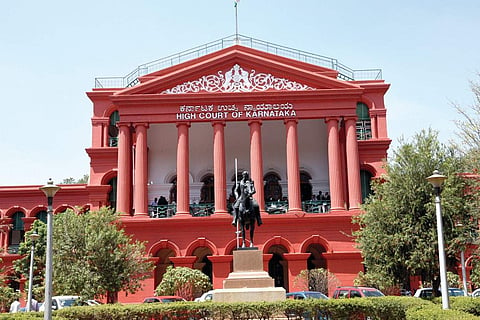

In a setback to the state government, the Karnataka High Court on Thursday, January 5, declared as unconstitutional the provisions of the Karnataka Education Act that gives powers to the government to prescribe the manner in which fees are to be levied by private unaided educational institutions. Parents across the state opposed the move by the court and are seeking to challenge the order.
“Section 2(11) (a) read with Section 48 and Section 124(A) of the Karnataka Education Act are contrary to Article 14 of the Constitution of India and held to be unconstitutional as far as private unaided educational institutions are concerned. Section 5(a) and 112 (a) of Karnataka Education Act is contrary to Articles 14 and 19(a)(g) of the constitution and the law declared by the Supreme Court,” said Justice ES Indiresh while pronouncing the order on a batch of petitions, as stated in a report by The New Indian Express.
A parent from the Voice of Parents Association said that the order sets a "bad precedent" as private unaided educational institutions are now unregulated. "They can now collect any amount of fees and ignore the safety aspects of children. They haven't taken the interests of children and parents into consideration," a parent told EdexLive on the condition of anonymity.
No forum for parents
Reports pointed out that the Karnataka High Court also ruled Section 2(11A) of the Act as unconstitutional. This section granted the District Education Regulatory Authority (DERA), headed by the Deputy Commissioner of each district, the power to regulate even unaided schools. Some parents also said that this ruling takes away their ability to complain about any fee increases. "Earlier, the DERA was present but with this order, there is no place left for us to raise our concerns," said Chetan Mahadev. Private schools have already been charging high fees, and this ruling allows them to continue doing so without any regulation, according to a parent. Shakeel, the President of the Voice of Parents Association and a parent, also noted that the DERA has only served as a mechanism for addressing grievances related to fees.
Shakeel also pointed out that even if the aforementioned provisions are deemed as unconstitutional, the educational institutions still come under the Right to Education (RTE) Act, 2009. "This Act mandates that states and Union Territories must form guidelines to ensure that schools are recognised. As a result, the Karnataka RTE Rules were brought in 2012 which state that private unaided schools must collect fees as set out by the department. This provision hasn't been challenged so how is it unconstitutional?" he said.
Safety clauses
According to media reports, the Karnataka High Court also ruled Section 5A of the Act as unconstitutional. This section required private unaided schools and their employees to follow guidelines set by the government to ensure the safety and security of children, including protection from sexual offenses. Parents have also expressed opposition to this change. "We are made to sign declaration forms not just in schools but also coaching institutions that say that they are not responsible if anything happens to our child. How can we send our children to these institutions then?" a parent said.
Chidananand, from Voice of Parents Association, stated that schools have been hiking fees for a long time. "We are requesting the state government to appeal to the second bench," he said.
